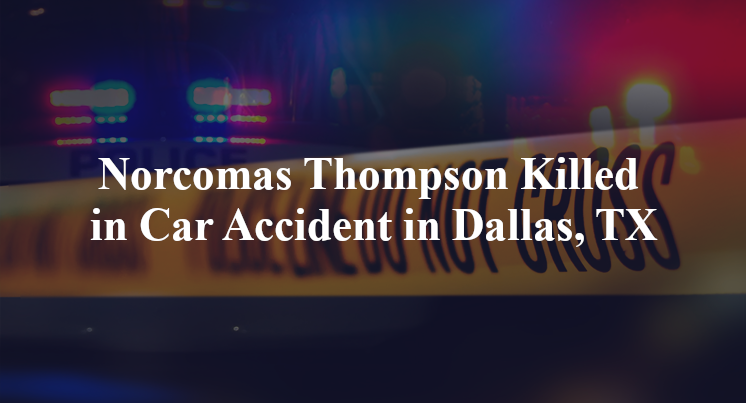Norcomas Thompson Killed in Car Accident in Dallas, TX
Dallas, TX — October 7, 2025, Norcomas Thomas was killed in a car accident at about 2 a.m. on eastbound Interstate 30.
A preliminary accident report indicates that two vehicles, a 2007 GMC C1500 and a 2017 Lincoln Continental, were disabled in a traffic lane when they were hit by a 2013 Mercedes-Benz sedan and a 2021 Ford Mustang.

GMC driver Norcomas Thompson, 58, died from injuries suffered in the crash on the bridge over Lake Ray Hubbard, according to the report.
The driver of the Lincoln was listed as possibly injured, as were the Mustang driver and a passenger in the Mercedes, the report states.
No other injuries were reported.
Authorities have not released any additional information about the Dallas County crash at this time.
Commentary
When something tragic unfolds on a quiet stretch of highway in the middle of the night, it’s natural to want immediate answers. But understanding what really happened often requires looking past surface-level reports. Behind every crash are layers that deserve careful scrutiny, especially when lives are lost.
Did the authorities thoroughly investigate the crash? With multiple vehicles disabled in a live traffic lane and then struck by oncoming traffic, it’s essential to ask whether the initial response involved more than basic documentation. Were crash scene analysts brought in to laser-map the area and trace the movement of each vehicle? Did they examine whether any of the drivers had time to react, or if they even saw the disabled vehicles in time? A pileup like this, especially on a bridge, presents complex dynamics that require more than just taking statements and measuring skid marks. Depending on which officers responded, the depth of the investigation could vary dramatically.
Has anyone looked into the possibility that a vehicle defect caused the crash? Any time a vehicle becomes disabled in a travel lane, mechanical failure should be one of the first considerations. Did the GMC or Lincoln break down unexpectedly? Were there issues with electrical systems, fuel delivery or braking? Equally important, did any of the striking vehicles have faulty collision warning systems or malfunctioning brakes that prevented them from stopping in time? Without formal inspections, these potential causes stay hidden beneath the surface.
Has all the electronic data relating to the crash been collected? Given the modern mix of vehicles, it’s very likely that at least some were equipped with engine control modules or similar black-box systems. Was any of that data pulled to confirm driver speed, braking or steering inputs? GPS logs, mobile phone activity and dash cam footage could also help clarify how long the vehicles were disabled, and whether the approaching drivers were distracted or impaired. With the crash taking place in the early hours, even minor details can shift the narrative, but only if the data is retrieved and analyzed.
When crashes happen quickly and in complex conditions, the truth doesn’t always sit in plain view. Digging deeper means asking uncomfortable but necessary questions, especially when someone's life has ended and others are left piecing things together.
Key Takeaways:
- Not all crash investigations involve detailed reconstructions or expert analysis.
- Vehicle defects can cause sudden breakdowns or limit crash avoidance. These need checking.
- Modern cars hold critical data that can reveal what drivers and vehicles were doing before impact.

*We appreciate your feedback and welcome anyone to comment on our blog entries, however all visitor blog comments must be approved by the site moderator prior to showing live on the site. By submitting a blog comment you acknowledge that your post may appear live on the site for any visitors to see, pending moderator approval. The operators of this site are not responsible for the accuracy or content of the comments made by site visitors. By submitting a comment, blog post, or email to this site you acknowledge that you may receive a response with regard to your questions or concerns. If you contact Grossman Law Offices using this online form, your message will not create an attorney-client relationship and will not necessarily be treated as privileged or confidential! You should not send sensitive or confidential information via the Internet. Since the Internet is not necessarily a secure environment, it is not possible to ensure that your message sent via the Internet might be kept secure and confidential. When you fill out a contact or comment form, send us an email directly, initiate a chat session or call us, you acknowledge we may use your contact information to communicate with you in the future for marketing purposes, but such marketing will always be done in an ethical way.